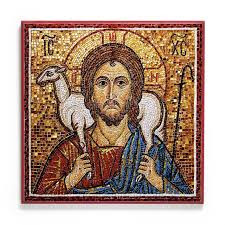Lectionary: Jeremiah 4:11-12, 22-28; Psalm 14; 1 Timothy 1:12-17; Luke 15:1-10
Happy homecoming! I give thanks that ours is a happy church to come home to – it’s one of Emmanuel’s most attractive qualities.
It isn’t just that there is happiness here, which there is even in these COVID-affected times, but that there is a constant desire for and intention toward the happiness of the people in this church home on so many levels.
We rejoice to have among us those for whom Emmanuel is the home they come back to visit each year. We welcome you home.
We also rejoice over and welcome those siblings who have been or would be scorned, judged, or excluded from other church homes. We open our doors and our hearts to you.
At Emmanuel, we know that we are all sinners saved by the grace of God, which is what Jesus is teaching in these parables today.
Luke begins by telling us that tax collectors and other sinners were coming to hear Jesus speak. The very presence of these ungodly people caused the godly people around them to complain. Responding to their grumbling Jesus tells three parables. We hear two of them today. We’ll hear the third one next Sunday.
In these parables, Jesus reframes relationship and returns it to the proper order asserting that relationship begins with God and is made available by God to everyone.
In the first parable, the iconic story of the shepherd who leaves the whole flock to seek and recover a single lost sheep, we find a tender comforting image: the found sheep wrapped around the Good Shepherd’s shoulders being carried safely home.
Seeing ourselves as the sheep and Jesus as our Good Shepherd, this parable makes us feel like we matter, and we like that feeling. We like believing that if we were the one who wandered off and got lost, our Good Shepherd would leave everyone and everything else behind in order to find us, then carry us home, rejoicing - and he would!
And while understanding the parable in this way makes us feel good, and loved, and valued, this parable isn’t about us – it’s about God whose nature it is to seek and save the lost, which here means out of relationship. This story is about God who rejoices each time anyone is reconciled back into relationship.
Sometimes our similarity with sheep is uncomfortably on target – which is why these parables are so effective. Sheep live in community, but much of the time their attention is focused on themselves – on finding and consuming that which will satisfy their hunger.
So, with their eyes looking down at the grass around their feet, they move from place to place - wherever the grass seems greener or more plentiful. Most of the time, the sheep doesn’t know it’s gotten lost until it finishes eating, looks up, and discovers that no one else is around. At that point, the sheep cries out – looking for a response from the flock or the shepherd. If there is no response, the lonesome sheep may panic and make dumb or dangerous choices. Or it may freeze, unable to make any decision at all, eventually dying of starvation right where it stands.
Notice in the parable that only one sheep in the flock knows it’s lost, even though there are 99 other sheep who, as the text says, are in the wilderness, which is Bible-speak for “lost”. Being part of a large crowd of sheep in the same place, doing the same thing, gives the flock a false sense of security.
This story, as sweet and comforting as it is for us, would have been shocking to Jesus’ listeners. You see, in Jesus’ time, shepherds were despised, “scorned as dishonest …” (New Interpreter’s Bible Commentary (NIB), CD-Rom, Vol. IX, 65), unclean – ritually and actually – there were no showers out in those fields you know, so they stank.
The Scribes and Pharisees would have been appalled and angered by this parable. God is NOT a shepherd.
An interesting thing about the story of the lost coin is that it doesn’t conjure up the kind of beautiful pastoral images the parable of the lost sheep does. As theologian Robert Farrar Capon says, most people don’t feel sorry for the coin which has been lost… and that’s the point.
The parable isn’t about the coin or us. It’s about God whose nature is to search diligently and work hard to find what had been lost.
At the end of each parable, Jesus says that all of heaven rejoices over one sinner who repents… one person who recognizes that she is lost and calls out to God for rescue; one person who turns his attention away from satisfying his own hunger and looks to God and God’s way instead.
Our relationship with God is THE relationship from which comes all our other relationships. God is our home.
God is the source of our happiness, and it is God’s Spirit that motivates us to grow our family, to expand our church boundaries to include and include, and include – even the blasphemer, the tax collector, and the sinner because God, whose love is beyond our comprehension, uses even our sinfulness to redeem. As St. Paul says, he was the foremost sinner who persecuted and killed Jesus’ followers, yet he received mercy, thereby revealing Christ’s “utmost patience” for all.
We who are followers of Jesus Christ are not a body of perfectly behaving, sinless persons. We are a collection of fully human, imperfect people, who forgive others as we have been forgiven and who welcome the least, the lost, and the excluded to the banquet table, just as Jesus did.
When Jesus says, “…I tell you, there is joy in the presence of the angels of God over one sinner who repents" he isn’t talking about our behavior. He’s talking about our hearts. Our behavior is simply the outward manifestation of what’s going on within our hearts.
We repent when we let go of all that hinders our relationship with God and prevents God’s love from growing in and through us. We repent when we open ourselves to receive the Love that chases after us, lifts us up, and carries us safely home.
That’s why coming home to our church matters. It’s where we learn and practice loving God, one another, and ourselves. At Emmanuel, we celebrate God’s amazing love for us and we do it among people who care enough to help us see when we have lost our way; people who will reach out and remind us to come back into relationship - to come home – and then rejoice when we do. Happy homeoming. Amen.





No comments:
Post a Comment